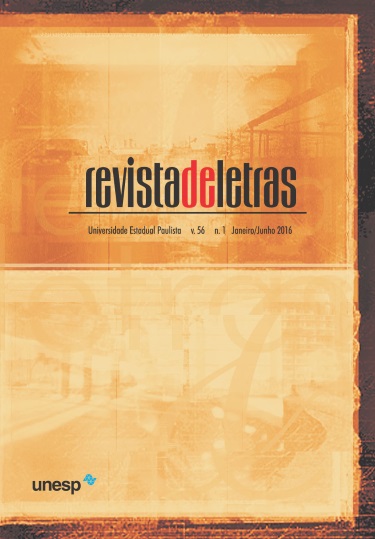The beholder as a voyeur: political implications of diderot´s thought on arts
Keywords:
Diderot, Salons, Bourgeois tragedy, Spectacle, Politics,Abstract
In this article we propose a link between the dramatic and pictorial theories and the social and political criticism of Denis Diderot. In the historical moment of the decline of both tragedy and neoclassical conventions, the philosophe tries to recover the moving capacity of theater. In order to achieve this objective, he suggests, among other things, that the plays should be written and acted as if the beholder didn´t exist, placing him in the position of a voyeur that has access to glimpse, from a hidden place, what is not meant to be seen. The same requirement is repeated in his reflections on painting, outlined in the Salons that he writes for the Correspondence Littéraire from 1759. In an extensive reading of the author’s works, we demonstrate that the strategy defended by him has a relevance that transcends its poetical and pictorial implications: it arises, in fact, from a political inconvenience and aims to denounce the hypocrisy and falsehood surviving in in eighteenth-century French culture as remnants of courtly and aristocratic society.Downloads
Published
23/10/2017
Issue
Section
Contributions
License
Os manuscritos aceitos e publicados são de propriedade da Revista de Letras. Os originais deverão ser acompanhados de documentos de transferência de direitos autorais contendo assinatura dos autores.
É vedada a submissão integral ou parcial do manuscrito a qualquer outro periódico.
A responsabilidade do conteúdo dos artigos é exclusiva dos autores.
É vedada a tradução para outro idioma sem a autorização escrita do Editor ouvida a Comissão Editorial.

